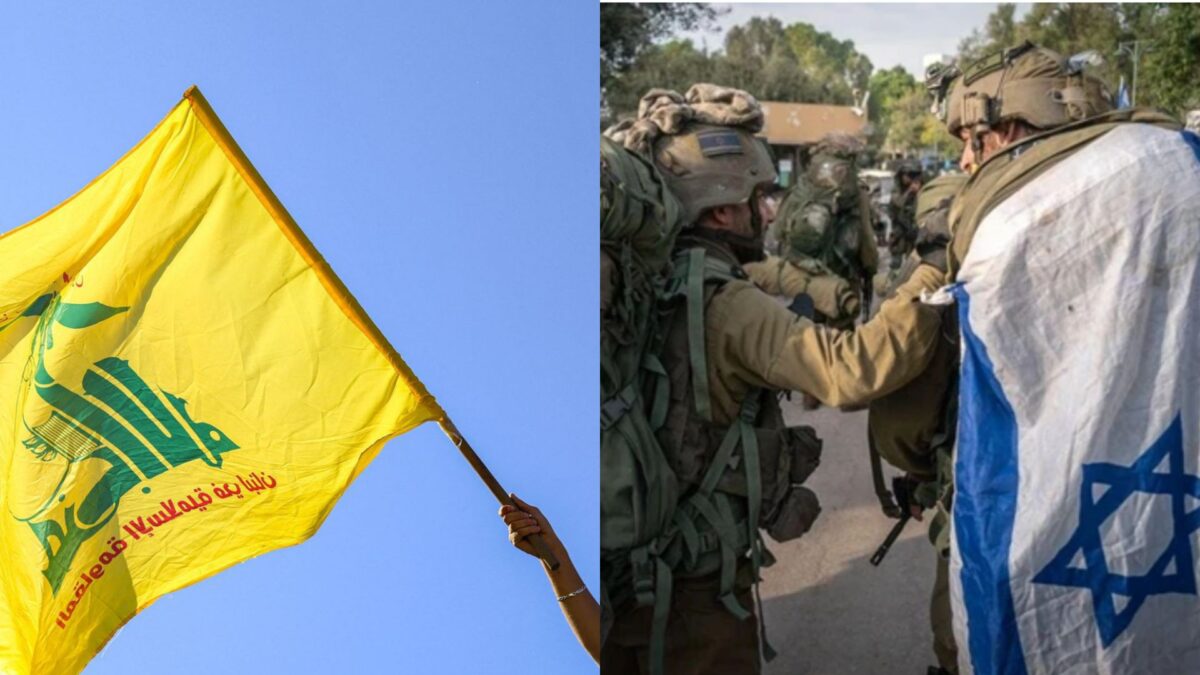The death of the Hezbollah commander, Wissam Tawil, seems detrimental to any possibility of peace talks in the region. Israel Defence Minister has warned that they can “copy-paste” the country’s actions in Gaza to Beirut.

Source: X
Beirut: As the tensions continue to escalate, Israeli drone strike on Monday killed a senior Hezbollah commander of Radwan Force in southern Lebanon, as per Lebanese security sources. This comes days after Saleh Al-Arouri’s killing. The Shiite militant group suffered a significant loss with the death of Wissam Tawil, their highest-ranking member.
The conflicts started on October 8, a day after Hamas carried out a devastating terror attack in Israel. Hezbollah has confirmed Tawil’s death and referred to him by his alias, Hajj Jawad. They have also shared images of him alongside other prominent Hezbollah officials and Qasem Soleimani, the former commander of Iran’s elite overseas operations unit, who was killed in a US airstrike four years ago. These images serve as a testament to Tawil’s importance within the organisation.
Table of Contents
Israel Acknowledges Involvement in Hezbollah Commander’s Death
Israel subsequently acknowledged its involvement in the killing of Tawil. In an interview with Israel’s Channel 14, Israel’s foreign minister, Israel Katz, asserted, “We have taken responsibility for the strike in south Lebanon. This action is a crucial component of our ongoing conflict.” Katz further emphasised that their focus lies on targeting Hezbollah’s operatives, dismantling their infrastructure, and neutralising the systems they have established to deter Israel.
The minister stated that our objective is not to counter 150,000 missiles, but rather to ensure the safety of the residents in the north, south, and the state of Israel. We aim to restore security to these regions and the nation as a whole.
Saleh Al-Arouri’s Killing and Subsequent Violence
The assassination of Tawil occurred shortly after the death of Saleh Al-Arouri, Hamas’ deputy head of the political bureau, and three others in a targeted attack on an office building in Beirut, Lebanon. Israel has not taken credit for the operation. In a “preliminary response” to Arouri’s killing, Hezbollah carried out a rocket attack on an airbase in northern Israel on Saturday. This incident escalated the conflict between the two parties, leading to more intense cross-border fighting.
Response from Israeli Defense Force
On Sunday, IDF spokesperson Daniel Hagari reported that a section of an Israeli base had been affected during the attack. In response, Israel has directed its attention towards the Radwan forces, an elite unit of Hezbollah stationed near the border. Hagari emphasized, “By targeting Hezbollah’s Radwan forces in southern Lebanon, we are effectively pushing them away from the border. Our unwavering commitment lies in establishing a new security landscape in the northern region, guaranteeing the safety of our residents.”
The IDF announced that Israel conducted airstrikes on Hezbollah targets in southern Lebanon today, in response to the firing of an anti-tank missile by the group towards Kiryat Shmona in northern Israel. According to Al Manar news outlet, Hezbollah has been consistently launching attacks against Israel. In a separate incident, the Israeli military confirmed the killing of Hamas militant Hassan Hakashah in Beit Jinn, Syria. Described as a key figure involved in directing rocket attacks from Syria towards Israel, Hamas has not yet issued a public statement regarding his death.
US Response to the Killing
In his response on Monday regarding the killing of Talil, Blinken emphasised the importance of avoiding further escalation and an actual conflict. He acknowledged that it is not in the interest of Israel, Lebanon, Hezbollah, or any party involved to witness such a situation unfold. Prior to his visit to Israel, Blinken mentioned that the Israelis have expressed their desire to seek a diplomatic solution that ensures the safety and enables the return of Israelis to their homes. This statement was made during a press gathering in Saudi Arabia.
Israeli Defence Minister’s Words
Israel’s Defense Minister, Yoav Gallant, stated in an interview with the Wall Street Journal on Sunday that although Israel is not actively seeking conflict with Hezbollah, it possesses the capability to replicate its military strategies employed in Gaza if the situation demands it, extending to the city of Beirut.



